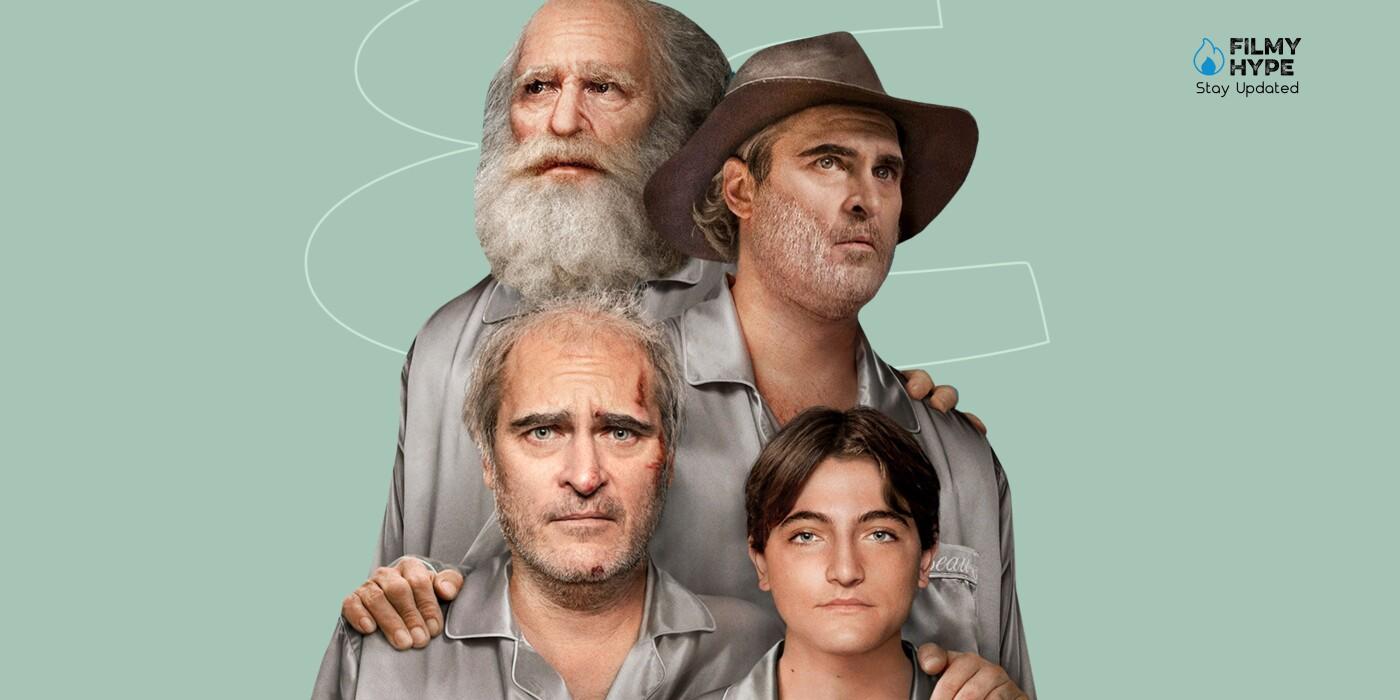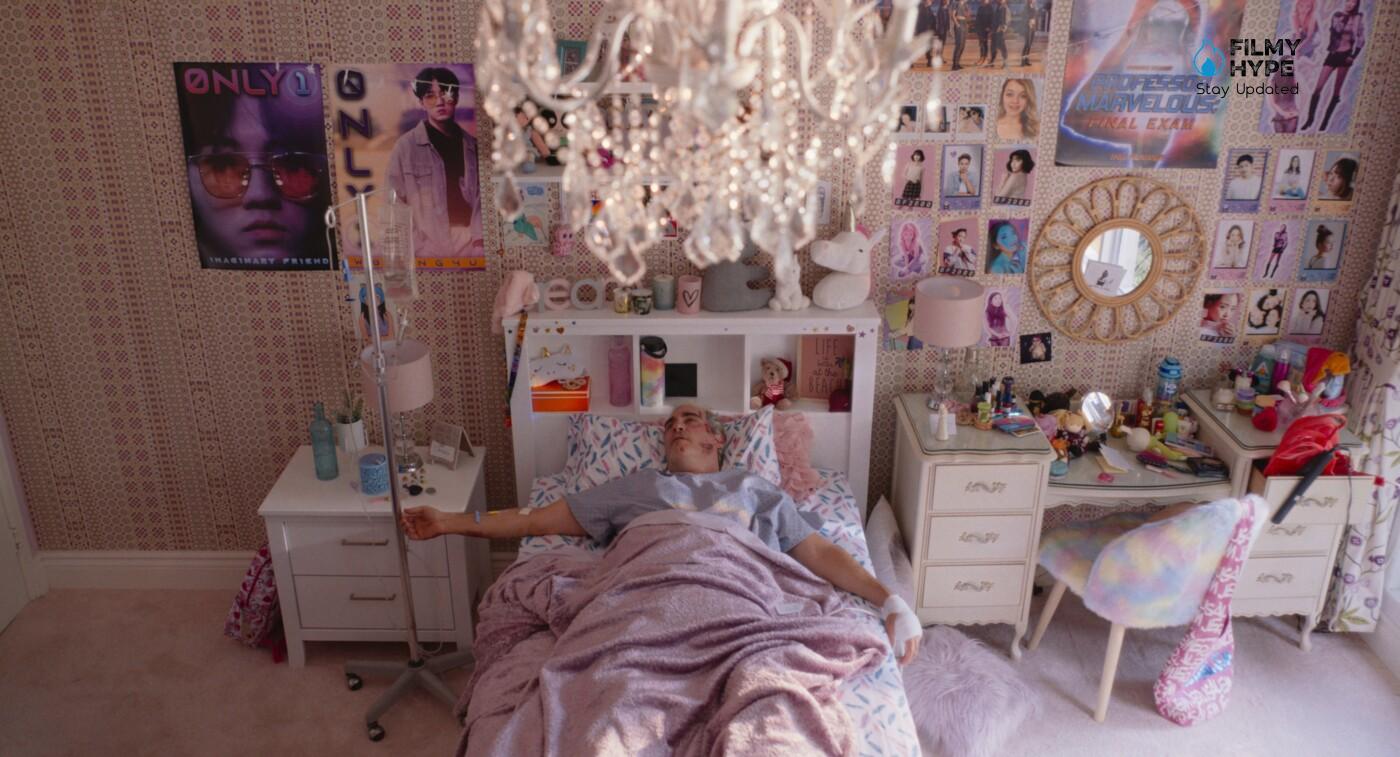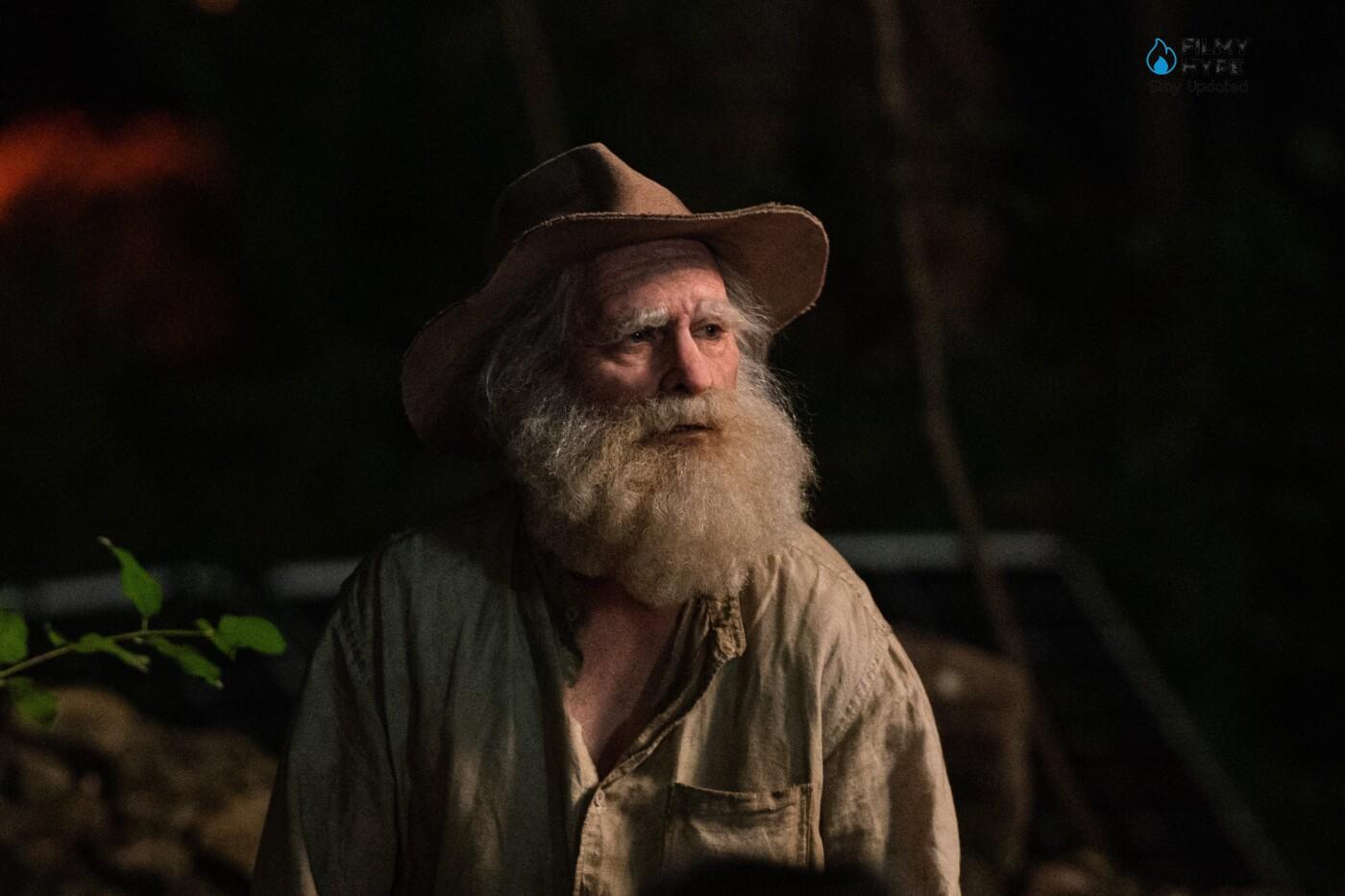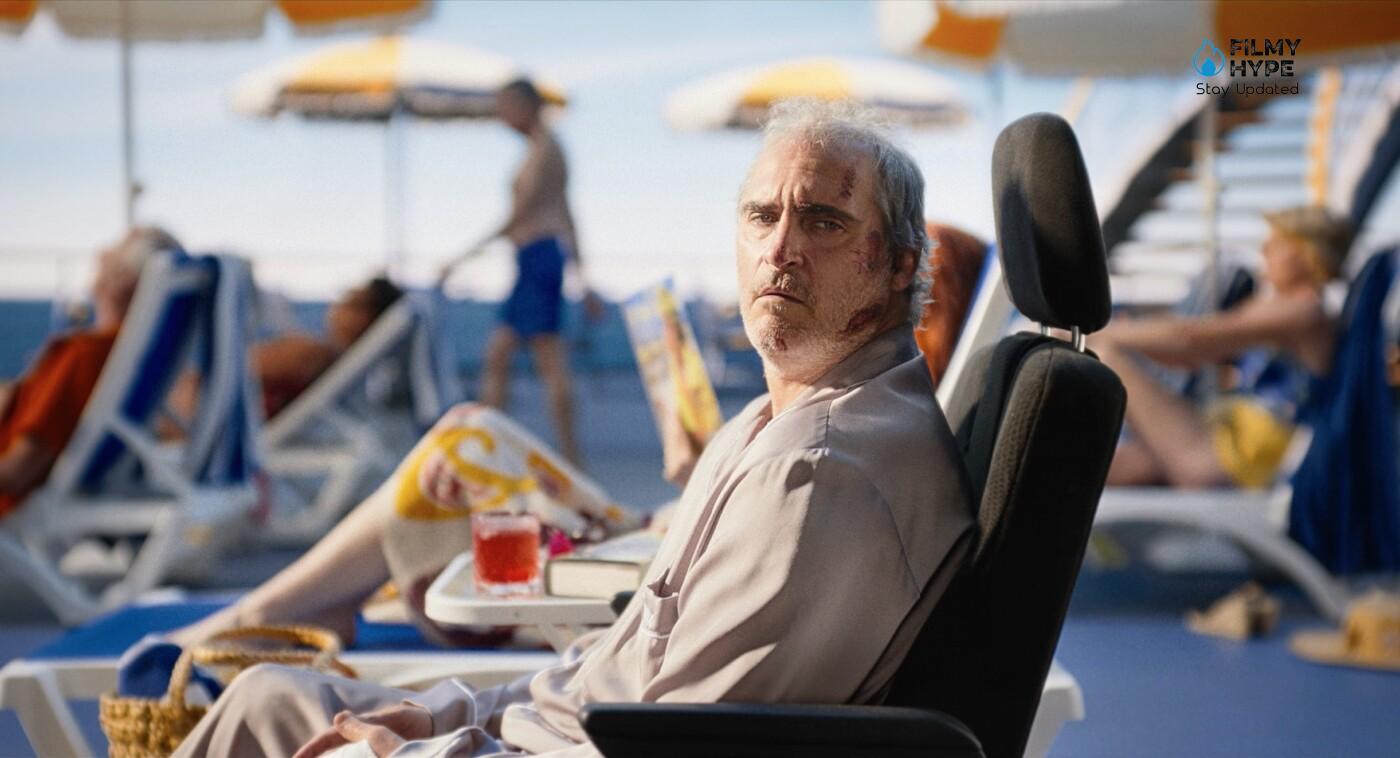Beau Is Afraid Review: The Absurd Odyssey of a Man Called Beau
Cast: Joaquin Phoenix, Patti LuPone, Nathan Lane, Parker Posey
Director: Ari Aster
Where to Watch: In theaters
Filmyhype.com Ratings: 3.5/5 (three and a half stars)
After the complex and ambitious Midsommar director Ari Aster back with Beau Is Afraid, which looked at the language of folk horror by re-adapting its criteria, Ari Aster presents himself, completely free rein, with his third film, Beau Is Afraid, in theaters from April 27th distributed by I Wonder Pictures. Accompanied by a swarm of negative critics, the film starring an astonished and frightened Joaquin Phoenix does not arrive in our cinemas with the best of presentations, and probably already only the duration of the film, three hours, will be enough to discourage spectators unless are not fans of the director of Hereditary. And it wouldn’t be such a bad choice to go and see the third film by that director who has made people talk so much about himself and who, together with Robert Eggers and Jordan Peele, has given an auteur boost to the horror genre, with many declinations and personal points of view. However, Beau Afraid doesn’t move within the confines of just one genre, revealing itself to be more of an Odyssey on hallucinogens, a kind of adventure film, a road movie on foot (barefoot) in which the protagonist gets lost in his paranoia.

In theaters from April 27 with I Wonder Pictures, Beau Is Afraid is not only the latest effort by Ari Aster, returning to the big screen four years after Midsommar, but also that of A24, now unstoppable from the point of view of great auteur cinema, frank, free and original. The massive presence at the festivals, the flood of awards during the Awards season, and the guarantee “label” that lets even the average viewer say “Ah, but it’s an A24 film”, are elements that are enough and more to make us realize of the success and importance of the New York film company; and yet, something about “freedom” is starting to go out of tune. Because as we will see in our review of Beau Is Afraid, Ari Aster’s third film does not accept compromises, resulting in a sometimes fascinating, sometimes unnerving vision, made up of incredible moments and unthinkable style falls. A three-hour journey that continually loses its way despite, on balance, being straight and linear. But it is also a film that escapes any definition, demonstrating that Aster is a truly singular voice.
Beau Is Afraid Review: The Story Plot
Beau (Joaquin Phoenix) is a fifty-year-old loner who lives in a dilapidated apartment building in one of the city’s weirdest and most dangerous neighborhoods. He is constantly followed by a psychiatrist (Stephen McKinley Henderson) who prescribes new drugs to reduce Beau’s anxieties and paranoid fears. The protagonist seems to have a contradictory relationship with her mother, a famous successful woman in the pharmaceutical industry named Mona (Patti LuPone): she is too tied to her son who visits her on her birthday. A ritual that suffocates our Beau, a victim of events, year after year. Leaving for the journey to his mother’s house, Beau experiences a particular situation that will upset his plans, leading to a near-death experience.
While being looked after by a family who decides to take care of him, Beau receives an unexpected phone call: his mother died suddenly. Now ours must necessarily undertake a journey home and make peace with the parent’s corpse. We have chosen to summarize only the beginning of the film, so as not to spoil the surprise of discovering the various situations that Beau is forced to face. Suffice it to say that as the journey continues, Beau’s experience (and consequently that of the viewer) will become increasingly smoky, liquid and fluid, straddling imagination and reality, between mental perception and tangible matter.

Based on the 2011 short film of the same name, the plot of Beau Is Afraid revolves around a middle-aged man, Beau (Joaquin Phoenix), who on the anniversary of his father’s disappearance has to go home to his mother. A rather simple, ordinary task that will have happened to each of us, especially those who are off-site or have lived for a very long time in a different place than their parents. Beau just has to wake up to be able to arrive at the airport at least two hours early, take the suitcase and the ticket, close the house, and go; indeed, a very simple operation Not for Beau. From the first moments, Ari Aster makes it clear to us that Beau is a person who doesn’t even know what the word simplicity is and, surely, he is a person with many unsolved problems that he tries to solve with therapy. Not surprisingly, the film opens with a session between Beau and his psychiatrist. Beau is insecure, paranoid, anxious, and so scared of life that he constantly feels inadequate.
He almost seems to live in another world, a child in the body of a big man, even making him a little creepy, almost wrong, in the gaze of the beholder. He makes him uncomfortable. But at the same time, as we get to know a little bit more about Beau, there is tenderness. Maybe compassion. Until Beau’s fears, his paranoia, begin to become ours. We cannot understand whether it works or not. You live in a terrible neighborhood inhabited by the worst scum possible and existing. He is in constant fear of being attacked and that the whole world is plotting against him. And what’s more, his relationship with his mother also seems particularly ambiguous. That classic love-hate of someone who has lived constantly under the shadow of a parent, shaped and confined in his expectations. On the one hand, Beau would just like to kill that kind of relationship, detach himself completely from his mother and take her autonomy; on the other hand, he knows he can’t do without it and the sense of guilt is and will always be too great to be able to give up the woman who, deep down he knows, ruined his life forever.
Beau Is Afraid Review and Analysis
As we said at the beginning of this Beau Is Afraid review, what Ari Aster wants to do, at least at the beginning, has put us in the shoes of a person with obvious mental health problems, addressing one of those issues that are still a taboo but which, finally, is being analyzed more and more in the cinematographic and, above all, television fields. Mental health is still the victim of a stigma dictated by ignorance and non-acceptance of science that deals with our minds. Mental health can interfere with our physical health and no, it is not to be reduced solely to the sphere of “crazy people” or those who are “really sick”. What then, exactly would that mean? Anxiety is not resolved with the phrase “yes but stay calmer” or depression with “but be happier, what have you to be sad about”. Hypochondriasis cannot be belittled with “you have nothing” or extreme gestures with “you just want to get attention”.
Through his aggressive, courageous, and unique style, Ari Aster pierces the membrane of ignorance and throws people into a surreal world, which in reality is not too different from the world we observe every day, He just changes the point of view. This film is almost a sociological and human experiment, at least for its first part, when we still manage to keep up with the director and, above all, when Aster manages to keep up with his own story, before being completely trapped by a bundle of ideas which, although rendered stylistically in an impeccable and captivating way, violently slam off the screen, weigh down and destabilize, making us completely lose contact. Let’s say the most obvious and simple things right away: Joaquin Phoenix holds all this crazy film on his shoulders. Despite a respectable career, Phoenix seems to want to continue to prove himself, giving life to characters who, on the one hand, could only have his body and his face, on the other hand, work precisely by the actor’s talent.

The Beau of him is truly a fragile and constantly uncomfortable person, full of nuances that are only imperceptibly perceived at first viewing and this characterization helps a lot in creating a glue between the different sequences of the film. Of course, this is not an unprecedented test for Phoenix (somehow, we are “used” to seeing him play suffering and over-the-top characters), but there is no doubt that seeing him on the screen is always a show. In the needle of the Compass for all three hours, Phoenix will share the screen with characters that are over the top and bordering on the absurd, from Nathan Lane (in the role of a hilarious family man) to Parker Posey (in one of the most memorable scenes of the film).
Ari Aster is a talented director, and it would be enough to see the incredible number of visual and directing ideas present within these 179 minutes to confirm it. Sometimes Aster just needs a slight movement of the camera to change the tone of the film, at other times he manages to construct sequences that are striking for their mastery, to underline a path of continuous and constant growth. It is even more sad to note, therefore, that Beau Is Afraid in the long run it turns out to be a film that loses sight of the public to let itself be abandoned to the most perverse obsessions of its author. Almost like a long-abandoned script whose best parts had been picked up and re-interpreted in Hereditary and Midsommar, Beau Is Afraid surprises, is unexpected, but rarely truly engaging.
This is strange because, in his two previous films, Aster had managed to make the viewer participate in all the strangeness inside the Grahams’ house and in the Swedish village with textbook ease and transport. Here, on the other hand, the expository clarity that can be lacking make the public understand the engine of the story and the problems faced. Undecided between a humorous tone (which works a lot) and a horrific seriousness, the film blames the long duration for the content it wants to propose and how it proposes it, occasionally falling into moments bordering on kitsch (one, in particular, it’s too much to make the audience feel satisfied at that moment). Demonstrating the director’s inspiration and an attempt to distance himself from the horror genre, Beau Is Afraid is truly a strange unclassifiable creature, a film without limits which, however, had to have limits. To be loved and hated continuously, without that solid foundation underfoot to prove itself a small cult.

The feeling is that, outside the genre language, Ari Aster has lost the reins of his narrative, giving free rein to his imagination and thus sabotaging himself, without a film machine that has offered him shores and limits to better rationalize his idea which is intriguing, but messy realized. But perhaps Beau’s spirit is afraid is just this: fear is irrational and uncontrolled, it does not admit reasonableness or limits of action, even more so if it lurks inside the head of a paranoiac who has been afraid of everything from the moment he born, even before emitting the first cry.
More than an ambitious film, as we often read, Beau Is Afraid is a container film, in which Ari Aster has poured, without regard for anything or anyone, ideas, traumas, sensations, situations, and perhaps even personal fears. It is an unbalanced film, a stream of consciousness through images without however the depth and need for reflection and comparison that a true consciousness has when it bares itself on the screen. Beau Afraid is cinematic delirium, the addition of suggestions and the uncontrolled glorification of one’s ego. Surely it is a tricky and not reassuring vision, but perhaps it was right to expect something like this from Aster because cinema doesn’t always have to be organic and reassuring.
Beau Is Afraid Review: The Last Words
Beau Is Afraid takes us into life, into the mind, into the gaze of a paranoid person. He forces us to observe the world through his eyes, through a paradoxical and surreal filter, which becomes a journey through emotions. A veritable Odyssey in the psyche and human relationships, now key themes of Ari Aster’s cinematography who, however, becomes a victim of himself, of his inspiration, of his genius. The suspension breaks, the duration of the film begins to weigh, and the focus of the story is completely lost by the wayside, leaving that unbearable bitterness of having seen everything and having seen absolutely nothing.






